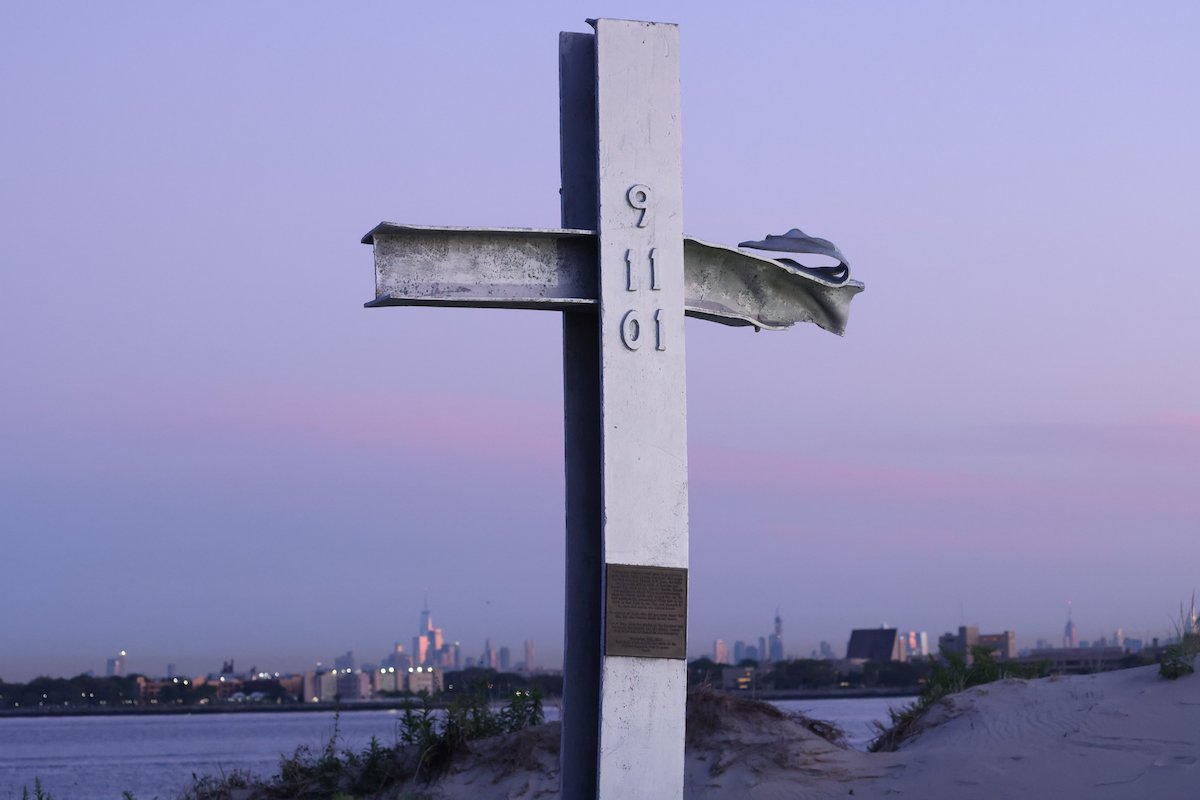PHILADELPHIA (CNS) — After the twin towers fell on Sept. 11, 2001, Jose Zeron remembered smelling “some sort of brick dust.”
“I don’t know exactly what it was, but it was weird, and it was everywhere,” said Zeron, who at the time was an 11-year-old attending St. George’s Ukrainian Catholic School in Manhattan, just two and a half miles away from the deadliest terrorist attack on U.S. soil.
Now a parishioner at Our Lady of Lourdes in Philadelphia, Zeron and his sisters were in class when teachers began “saying something about a plane and the World Trade Center,” he said, adding that he had no clue what they were talking about.
Zeron and his siblings waited for their parents nearby, at the house of his younger sister’s friend. With the subways shut down, his father and mother walked from Queens, and in the meantime, the friend’s family took the children up to the roof of their apartment building.
“The mom said, ‘That’s where the towers used to be,'” Zeron recalled.
Before returning home, he and his family went to church, which was packed.
Father Mark Tobin at the time was a sophomore in high school when a teacher entered his second period class to advise the instructor of the attacks.
“It’s hard to fathom or to put into perspective, but I’d say in some ways it popped our bubble,” said Father Tobin, now a parochial vicar at Mary, Mother of the Redeemer Parish in North Wales, Pennsylvania. “We lived in a pretty comfortable society, and now we had an attack on our own turf, one that affected people in New York and D.C., not too far from us.”
David Serrano, assistant director of the Archdiocese of Philadelphia’s Office for Young Adults, agreed. Like Father Tobin, he was in high school when the Sept. 11 attacks took place and described “a common sense of shock over what was happening.”
As the news sank in, “uncertainty transformed into a spirit of supporting one another,” said Serrano. “You asked, ‘How are you doing? How are you dealing with this?'”
For the future Father Tobin, the attacks affirmed an emerging call to military service. After graduating from high school, he enlisted in the Navy and became a Special Warfare Combatant Crewman with two six-month deployments in Iraq between 2006 to 2009.
“I would have joined the military regardless, but I definitely think 9/11 gave me a sense of the country being in need and of me having to serve,” said Father Tobin. “There are things worth protecting.”
While 9/11’s impact on national security, civil liberties, travel regulations and Western perceptions of Islam can be clearly identified, assessing the tragedy’s long-term effects on younger generations is less straightforward.
Ten years after the attacks, psychologists Nancy Eisenberg and Roxane Cohen Silver concluded “there is still much to be learned” about how 9/11 shaped the development of children and adolescents. A recent Pew Research survey found “9/11 remains a powerful memory for Americans — but only for adults old enough to remember.”
The recent U.S. withdrawal from Afghanistan, after a two-decade war sparked by 9/11, has highlighted the mixture of sorrow, weariness and resignation with which Americans of all ages now regard the ongoing reality of terrorism.
On top of that, the U.S. is also dealing with issue of gun violence giving Zeron the view that “this country is very ill.”
He said the nation’s “understanding of itself and its people is completely off, and it’s not a reflection of what as Catholics we know from the teachings of the church.”
That’s why faith in God is more essential than ever, said Father Tobin.
“Our strength is God’s great passion and desire for us,” he said. “Even in the midst of all the suffering, there are still so many signs of God’s goodness.”
Christ’s passion, death and resurrection reveal that “God doesn’t want to be far from us,” said Father Tobin. “God shares in our suffering so he can impart to us new life.”







